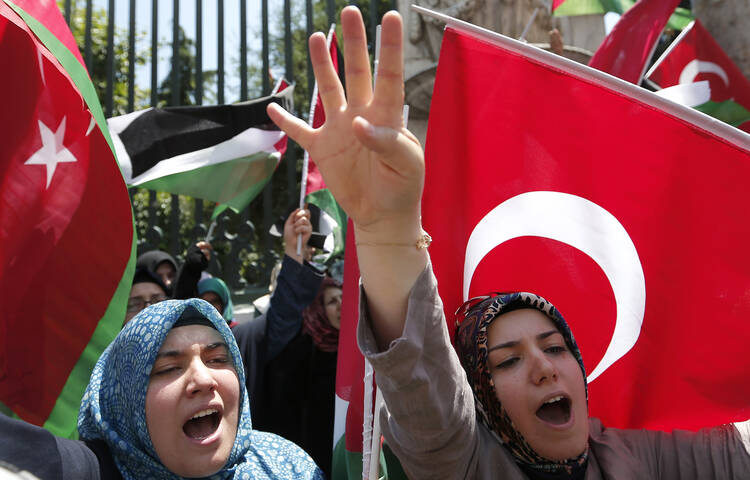As anti-Israel protests flare up across Europe, it’s easy to see why leaders are tense. France has the third largest Jewish population in the world, England has seen an alarming increase in reported hate crimes, and Germany has—to put it lightly—a complicated relationship with the Jewish people.
There is no reason to limit peaceful public protest, but these have been anything but. Although no strangers to demonstrations and riots, French officials restricted protesting in several sections of Paris, fearing that the participants would become violent. In Germany, some pro-Gaza demonstrators have been chanting “gas the Jews!” There has been property destruction, including damage to synagogues and Jewish-owned businesses, as well as several physical attacks. Foreign ministers of France, Germany and Italy released a statement on July 22 that said, in part: “Nothing, not even the dramatic military confrontation in Gaza, can justify such acts here in Europe.”
Obviously not every protestor is as rabid; the vast majority aren’t calling for murder or destroying property. But Europe has an old underground spring of anti-Semitism, and the current violence in Gaza has tapped into that.
Violence and the destruction of property are clearly reprehensible, but we have to be aware of less observable anti-Semitism. Peaceful protests require more than restraint from physical aggression: they require that protestors see their enemies—unfortunately for many in this case, the Jewish people at large—as human beings. When the hashtag #HitlerWasRight trends, however briefly, on Twitter, it’s clear that we have lost that perspective.
These protestors detract from legitimate criticism of Israel, especially in the United States where it’s difficult to voice disapproving opinions without being labeled anti-Semitic by liberals or conservatives. In many ways, that particular problem has been caused by Israel itself as it manipulates the slippery distinction between nation and state.
Not all Jews are Israelis and not all Israelis are Jews. The Jewish people may be a nation—and even that is debatable for some, given the global spread of all religions and the changing definition of nationhood—but when the Israeli government makes decisions, it claims to make them on behalf of the Jewish people, damming them in the court of public opinion whether or not they support the state’s choices.
Over time, this hardline attitude damages Israel’s cause, giving rise to the very anti-Semitism that it wants to fight. In the modern world, wars are won by international judgment as much as by guns. So when Israel makes poor decisions and forces every Jewish person to carry the burden those decisions create, those racist, violent protestors get more support from people who begin to equate a beautiful religion with terrible violence. There are plenty of Jewish people, Zionists included, who do not support Israel’s actions in Gaza. And there are plenty of Jewish people who have never set foot in Israel at all. While we cannot change the way Israel sees itself in the world, we can change the way we choose to see it. We can choose not to hold every Jewish person responsible for the actions of Israeli leaders, just as we would not hold every protestor responsible for rocks thrown by just a few of them.
Both true anti-Semites and fervent Zionists prevent us from having a reasonable discussion about Israel. Faced with mindless hate on one side and fearful political correctness on the other, we can be afraid to have frank conversation. Yet is remains the responsibility of every thinking person to elevate our national discourse.
Allison Shapiro is a summer intern at America.








